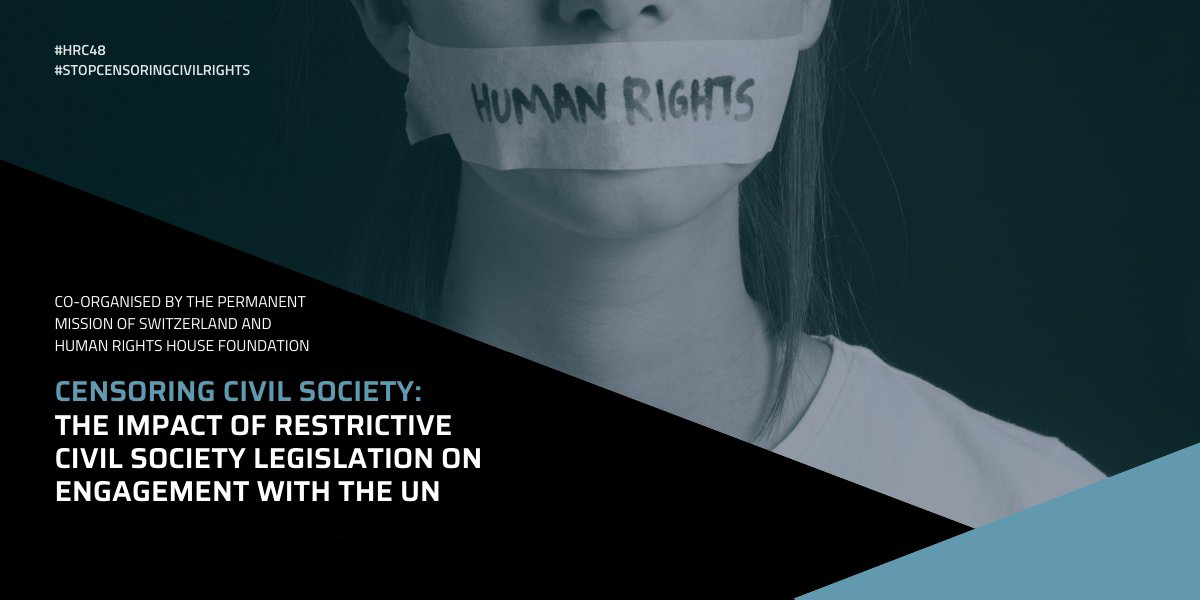Legislation that limits civil society space makes communication on human rights at an international level increasingly difficult and risky to conduct.
Legislation that restricts civic space creates direct barriers to human rights work and can have a “chilling effect” on human rights advocacy. When combined with narratives that are hostile to independent civil society, including accusations that human rights defenders work against the national interest, they lead to criminalisation, intimidation, and self-censorship and put collaboration on human rights with the UN at risk. Legislation introduced by states over the past eighteen months, ostensibly to combat the spread of Covid-19, has undoubtedly reinforced these barriers. This panel event will explore various challenges faced by civil society around the world, and address how the Human Rights Council can best respond.
Moderated by
- Matthew Jones, Human Rights House Foundation
Opening remarks from
- Ambassador Félix Baumann, Permanent Mission of Switzerland
Panel
- Ilze Brands Kehris, UN Assistant Secretary-General for Human Rights
- Clément Voule, UN Special Rapporteur on the Rights of Freedom of Assembly & Association
- Victoria Fedorova, Legal Initiative
- Feliciano Reyna Ganteaume, Asociación Civil Acción Solidaria
- Denis Kwok, Lawyer and former member of the Hong Kong Legislative Council
- Claire Nevin, Gulf Centre for Human Rights
- Armel Niyongere, ACAT Burundi
This event was hosted on 30 Sept 2021 and was organised by Human Rights House Foundation and the Permanent Mission of Switzerland to the United Nations in Geneva.
The event was co-sponsored by CIVICUS, The European Center for Not-for-Profit Law, INCL and ISHR.





